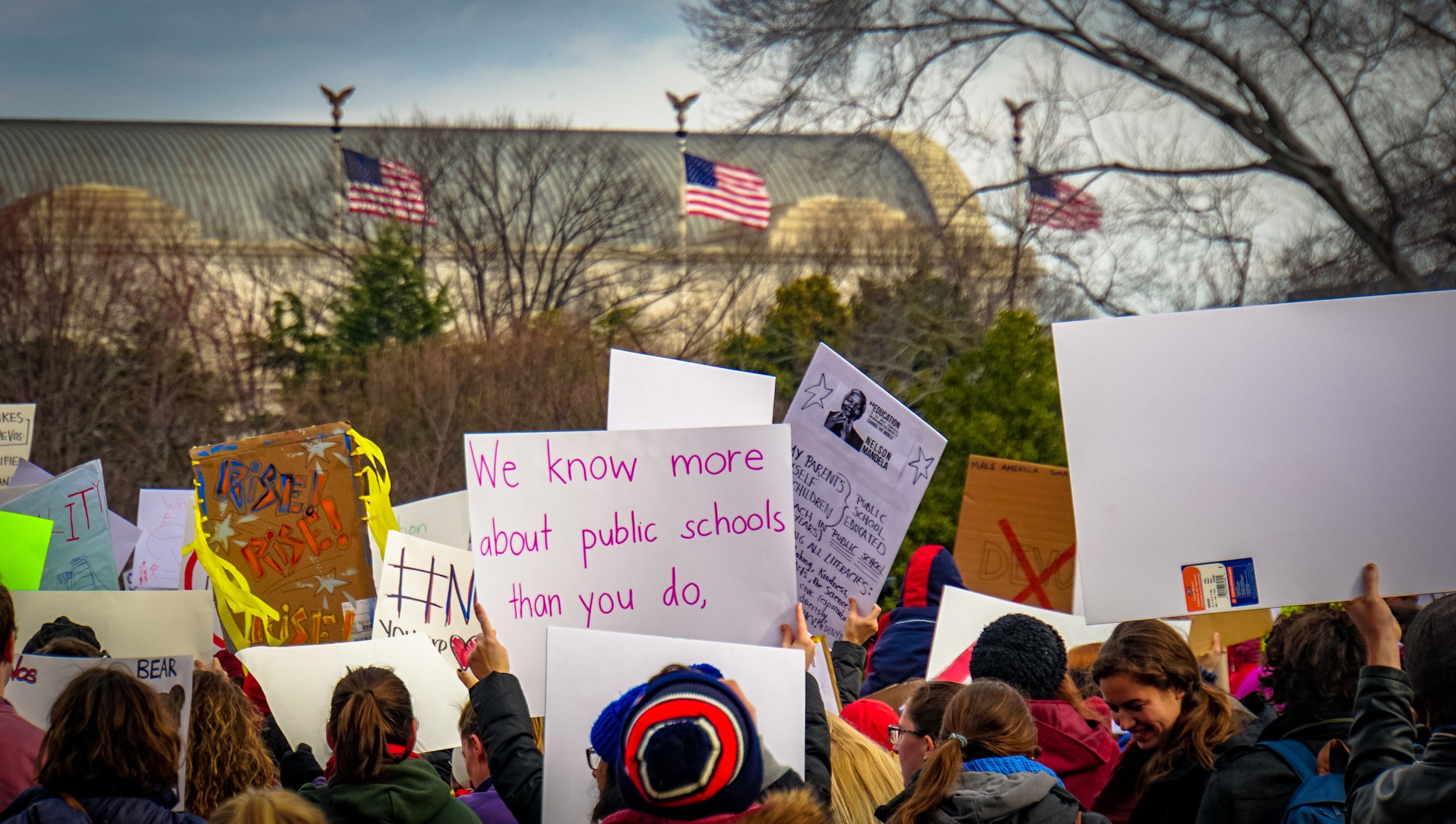Last year’s slate of religion-related cases taken up by the U.S. Supreme Court was … a lot.
Coverage around Dobbs v. Jackson Women’s Health Organization and Kennedy v. Bremerton School District came hard and fast last spring and summer. Not only did landmark decisions around a woman’s right to choose and freedom of religious expression in schools cause cultural and political shock waves, they also raised the question of how religion itself functions on the Supreme Court and the current Court’s interpretation of the First Amendment.
Pundits and experts used Supreme Court verdicts to reexamine the role of law and the relationship between religion and the state. These conversations are ongoing, as the Supreme Court deliberates on First Amendment cases, specifically around establishment vs. expression, and analysts consider how the current justices’ decisions relate to precedent established by previous Courts.
In the wake of last year’s momentous decisions, and their significant reactions, some wondered what role religious faith plays in Supreme Court decisions and whether it should feature in the bench’s decision-making process at all.
According to a 2022 Pew Research Center survey, a notable number of U.S. adults (35%) think the Supreme Court is “friendly” toward religion (compared with just 18% who thought so in 2019). Furthermore, people in the U.S. “are more likely to say the court’s recent decisions have helped (rather than harmed) the interests of U.S. Christians, and harmed (rather than helped) the interests of people in the U.S. who are not religious.”
But, as with most things in the U.S. these days, Americans are fairly split on whether justices should bracket their religious beliefs when making Court decisions. Around 44% say justices have been letting their faith have too much a say in their deliberations, while 40% feel the influence of religion on the current Court is about right.
The question of whether the Court is too religious depends on what perspective you come from. For example, religious conservatives might think SCOTUS is finally getting things right with what some read as a more traditionalist, Christian reading of the Constitution. Religious minorities, on the other hand, might feel the court is violating their religious freedom by favoring a particular tradition — or traditions. The non-religious and those that advocate for a strict separation between church and state are showing particular concern around what they see as the justices’ faith driving their decisions, as revealed in public comments.
And what faith do the Supreme Court justices identify with? Six of the current Supreme Court justices are Catholic (Samuel Alito, Amy Coney Barrett, Brett Kavanaugh, John Roberts, Sonia Sotomayor and Clarence Thomas), two are Protestant (Neil Gorsuch and Ketanji Brown Jackson), and after Stephen Breyer’s retirement, Elena Kagan is the only Jewish justice.
This mix is “not reflective of the U.S. population,” according to Gallup’s statistics:
… about 22% of the adult population identifies as Catholic, as opposed to the 67% Catholic representation on the court. Two percent of the population identifies as Jewish (Kagan represents 11% of the nine justices). The biggest disproportionality comes in terms of Protestants. About 45% of Americans are non-Catholic Christian, or Protestant, compared with what will be 22% Protestant representation on the court. There is also a completely missing constituency on the court, the “nones,” or those who when asked say they have no formal religious identity [who make up about 21% of the population] …
That overrepresentation has some concerned. Andrew Koppelman, a law professor at Northwestern University, wrote that the court’s religious persuasions have led justices to issue “orders to public officials based on [their] gut feelings, seemingly undisturbed by exposure to evidence.” In other words, Koppelman thinks SCOTUS is going against several decades of decisions regarding the balance of establishment of religion or prohibiting its free exercise in the First Amendment. For his part, he feels the Court is ignoring the First Amendment altogether and making decisions based on their personal faith.
Whether or not this has led to a certain “lawlessness” on the court, as Koppelman argues, the “Roberts Court” (under the leadership of Chief Justice Roberts) “has ruled in favor of religious organizations far more frequently than its predecessors,” according to research from the University of Southern California’s Lee Epstein and University of Chicago’s Eric A. Posner.
In their statistical analysis, Epstein and Posner found that the Roberts Court ruled in religious organizations’ favor 81% of the time, compared with around 50% for all previous eras since 1953. They wrote:
In most of these cases, the winning religion was a mainstream Christian organization, whereas in the past pro-religion outcomes more frequently favored minority or marginal religious organizations. … this transformation is largely the result of changes in the Court’s personnel: a majority of Roberts Court justices are ideologically conservative and religiously devout—a significant break from the past.
All of this suggests the justices’ faith will continue to play a role in the Supreme Court’s pending cases and impending decisions — in 2023 and beyond. It might also encourage some plaintiffs to appeal to the nation’s highest court, feeling they might have a bench stacked in their favor.
The latest Source Guide from ReligionLink explores these issues — and this term’s religion-related cases — in more detail. Click below to read more…

